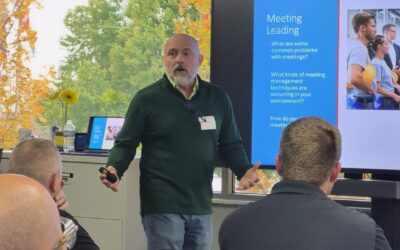Why Culture Change Is Essential for Digital Transformation
Shortcomings in organizational culture are one of the main impediments to company success in the digital age, according to a recent McKinsey survey of global executives. The survey highlighted three digital-culture deficiencies: functional and departmental silos, a fear of taking risks, and difficulty forming and acting on a single view of the customer.
Even in technology-focused companies or departments, such as IT, these three deficiencies are often commonplace. When an organization’s culture is fast-moving and digital-dependent, employees often use their own preferred tools and solutions without collaborating or sharing information. This can lead to inconsistent perspectives on customers and their needs. And while technology gives us the opportunity to optimize, organizations can end up focusing on optimization over innovation, dampening experimentation and potentially slowing growth.
Does Your Organization Have a Digital Culture?
Grasping the imperative for digital transformation can be a challenge, especially if nothing appears to be wrong with the way your organization operates.
A common misconception is that if a company upgrades its technology, digital transformation is done. The reality, however, is that digital transformation isn’t about software or technology — it’s about organizational adaptability. To keep pace with the change driven by digital transformation, organizations must be agile and adaptable, and organizational culture is crucial to the success of any digital initiative.




